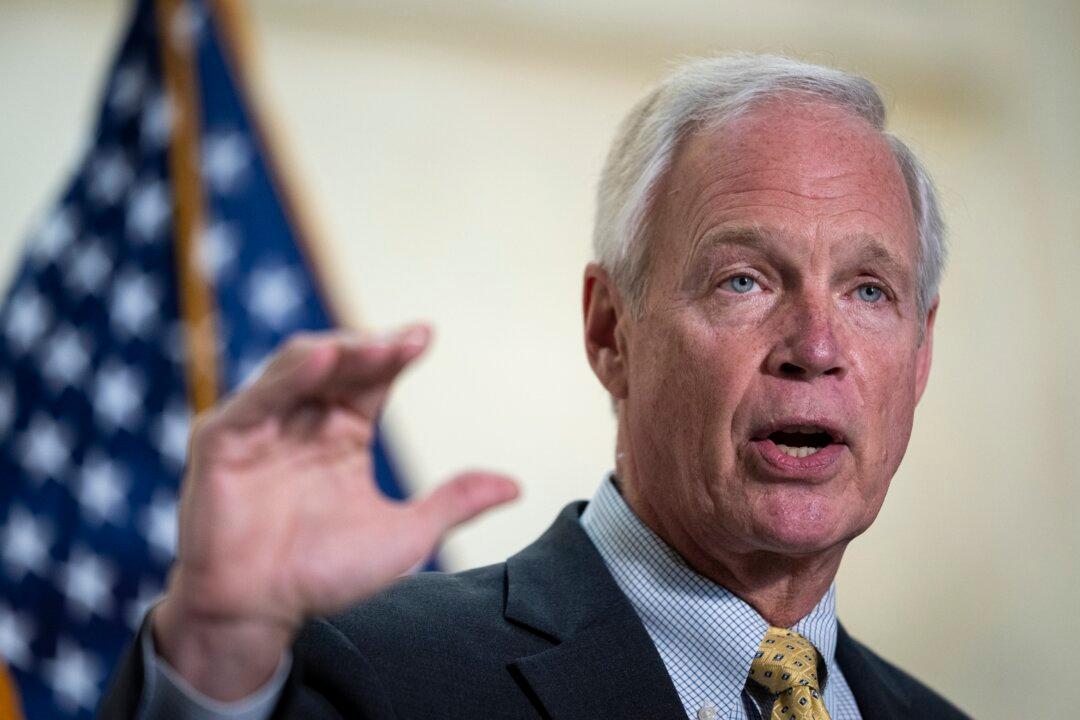Sen. Ron Johnson (R-Wis.) said this week he may not be the best Republican candidate for the current election cycle, pointing to how he is targeted frequently by critics.
“I want to make sure that this U.S. Senate seat is retained in Republican hands,” Johnson told radio host Lisa Boothe.





